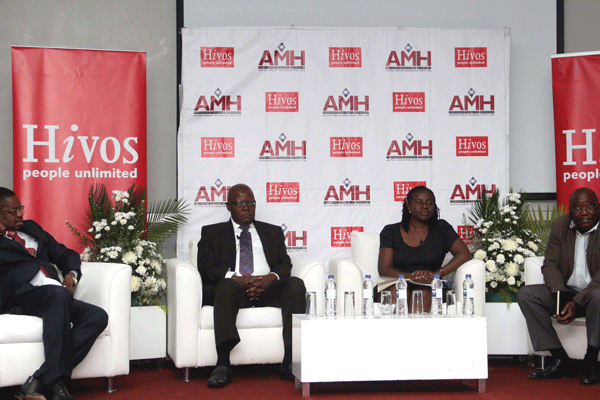Zimbabwe adopted a new Constitution in 2013, putting an end to the post-war Lancaster House Constitution that had been used as the country’s supreme law since 1980. However, since 2013, very little progress has been made in aligning the country’s laws to the new constitution.
The fact that the current constitution and the notion of ‘constitutionalism’ are at odds with each other was put under the spotlight at a recent ‘AMH Conversations’ event titled:“ The State of Constitutionalism in Zimbabwe,” held in Harare, Zimbabwe’s capital. The lack of alignment of the legal regime with the new constitution is putting paid decade-long lobby and advocacy efforts by civil society for a progressive and democratic constitution.
Former legislator and one of the key drafters of the new constitution, Munyaradzi Paul Mangwana, challenged Zimbabweans to demand the full implementation of the new Constitution’s provisions, saying the State would not serve up those rights on a silver platter.
“If we did like the Kenyans, who put up a special committee to ensure the implementation of the new Constitution, we would have been in a better position,” he said. “Politicians won’t make an effort to reduce their own powers unless pressure is put on them by civil society.”
Mangwana added that State had an obligation to raise levels of awareness of the new constitution among the citizenry.
“The Constitution obligates the State to teach its civil service, police, and students about the new obligations as well as its provisions. So if that is not being done, there is a problem. People ought to challenge the Executive like what my learned colleague Biti and others are doing in the courts,” he said.
Mangwana also said that no measure had been put in place to effectively put in place the new constitution despite the fact that its provisions are among some of the best in the world.
“We rushed the constitution without proper transition mechanisms in place because elections were pending during that time, and because of that, we are now being faced by the mammoth task of aligning our laws with it, and this is now affecting its implementation. This is why we currently have constitutionalism debates that could not have been the case had we put proper transition mechanisms in place,” said Mangwana.
Another panellist, former finance minister Tendai Biti, accused the incumbent ZANU PF led government of dilly-dallying about implementing the new constitution.
“It’s not surprising that you hear Zanu PF saying that they want to change the Constitution because they are refusing to accept the new order.”
Political commentator, Pedzisayi Ruhanya, said that it was vital to understand the political dynamics in Zimbabwe.
What is the nature of the State that is governing us? We need to understand the political economy of our country,” Ruhanya said.
Prominent lawyer and legislator Jessie Majome said that only 20 percent of the new constitution has been implemented so far.
Since 2014 Hivos Southern Africa Hub has been providing support to Alpha Media Holdings, a leading newspaper publisher in Zimbabwe, to conduct dialogues on critical issues facing Zimbabwe.




